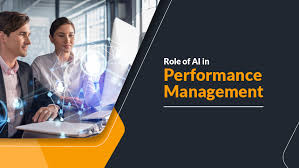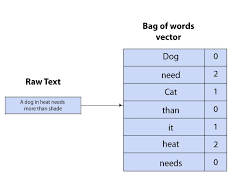AI in Performance Management: Benefits and Use Cases
AI is making its way into all aspects of the workplace, and performance management is no exception. While the technology can streamline performance reviews and enhance feedback quality, HR leaders should be mindful of potential drawbacks, such as impersonal or overly generic feedback.
Here’s a look at how AI can be used in performance management, along with its advantages and some challenges to consider.
4 Benefits of Using AI in Performance Management
AI can offer several advantages for companies in terms of improving employee feedback and overall performance. Here are four key benefits:
1. Faster Employee Feedback Creation
AI can help managers draft initial feedback for employees, saving time and effort. By setting parameters like years in the role or specific job metrics, AI-generated feedback can be more accurate. However, managers should review and personalize the feedback to ensure it feels relevant and human.
2. Enhanced Feedback Quality
AI tools can analyze performance review drafts, identifying issues like repetitive wording, biased language, or inappropriate tone. By refining the text, AI helps managers deliver more thoughtful and effective feedback.
3. Better Reporting and Dashboards
AI can analyze performance data and generate reports or dashboards, providing senior leaders and HR teams with a clear overview of employee performance. This capability is especially useful for large companies with substantial data, helping decision-makers track progress and identify trends.
4. Boosted Employee Performance
By simplifying the review process, AI can encourage managers to provide feedback more frequently. Regular, timely feedback keeps employees focused, motivated, and aligned with company goals, enhancing their development and overall experience.
4 Use Cases for AI in Performance Management
AI’s role in performance management goes beyond feedback creation. Here are four specific ways AI can streamline the process:
1. Employee Data Analysis
AI can aggregate and analyze various employee data sources—such as past performance reviews or internal communications—summarizing key insights for managers. This saves time spent on manual data gathering, though managers should still verify the data and focus on the most relevant information.
2. Generating Discussion Topics
AI can generate discussion prompts for managers to use in one-on-one meetings with employees, such as future career goals or project challenges. While this saves time, managers should tailor the AI suggestions to the individual employee to ensure relevance.
3. Career Path Generation
AI can suggest potential career paths for employees, pointing out skills or training required for advancement. While helpful, managers should rely on company-specific career progression frameworks when available, as these tend to be more tailored to the organization’s needs.
4. Feedback Reminders
AI can automatically remind managers to provide feedback to their direct reports, helping maintain a regular cadence of performance reviews. Additionally, AI can flag anomalies in feedback frequency, ensuring that employees receive consistent input throughout the year.
Key Takeaways for HR Leaders
While AI can significantly enhance the efficiency and effectiveness of performance management, it’s essential to remember that human oversight is critical. AI can automate processes and improve feedback, but managers should always review AI-generated content for accuracy and appropriateness to maintain a personal connection with their employees.
By leveraging AI thoughtfully, companies can improve performance management processes, offer more frequent feedback, and drive better employee outcomes.













